What Are the Signs You Need a Chimney Inspection?
Your home’s chimney is more than just an architectural feature it’s a vital system that supports safe and efficient heating. Over time, soot, creosote, weather damage, or structural wear can compromise your chimney, leading to fire hazards or costly repairs. Homeowners often overlook their chimneys until problems surface, but routine care is essential. Recognizing the warning signs early ensures a safer and more energy-efficient home. One of the best ways to protect your family and property is through a regular Chimney Inspection.
What Does a Chimney Inspection Do?
A chimney inspection is a thorough evaluation of your chimney and fireplace system. Certified chimney technicians check for blockages, damage, and buildup that can threaten both safety and performance.
Key goals of a Chimney Inspection in Houston include:
- Detecting creosote buildup that increases fire risk
- Identifying cracks, leaks, or loose masonry
- Checking the chimney cap, flashing, and crown for wear
- Ensuring proper ventilation and airflow
- Verifying compliance with local building codes
Signs You Need a Chimney Inspection
If you notice any of the following warning signs, it’s time to schedule a chimney inspection right away:
- Unpleasant odors such as smoky, musty, or burnt smells from the fireplace
- Smoke backing up into your home instead of venting outside
- Thick black creosote or soot deposits inside the flue or firebox
- Crumbling masonry or mortar around the chimney
- Water leaks or stains inside the fireplace or chimney walls
- Difficulty lighting or maintaining a steady fire
- Birds, squirrels, or nesting materials blocking the chimney
How Often Should You Schedule a Chimney Inspection?
The National Fire Protection Association (NFPA) recommends that all chimneys be inspected at least once a year, regardless of how often they are used.
- Light use (occasional fires): inspect annually
- Moderate to heavy use (regular winter heating): inspect annually and clean as needed
- Gas fireplaces: still need inspections to detect venting or gas issues
- Real estate transactions: always schedule an inspection before buying or selling a home
Checklist: What Happens During a Chimney Inspection
Here’s what a typical Chimney Inspection in Houston appointment includes:
- Visual inspection of chimney interior and exterior
- Creosote buildup measurement and removal if needed
- Checking chimney cap, flashing, and damper
- Testing airflow and smoke ventilation
- Evaluating masonry, mortar, and crown condition
- Safety check for fire hazards or blockages
- Detailed report with maintenance or repair recommendations
Benefits of Hiring a Certified Professional
Working with a professional chimney service offers peace of mind and long-term benefits.
- Fire Safety Assurance – reduce the risk of chimney fires
- Energy Efficiency – improve heating performance and reduce utility costs
- Affordable Pricing – cost-effective inspection plans tailored to your home
- Annual Maintenance Plans – keep your chimney in excellent condition year-round
- Certified Technicians – qualified experts with training and experience
- No-Mess Guarantee – inspections and cleanings without leaving your home dirty
- Chimney Cap & Masonry Repairs – prevent water intrusion and structural issues
- Real Estate Inspections – ensure safe and transparent property transactions
Chimney Inspection Pricing in Houston
Basic Chimney Inspection – $99 – Visual check for blockages and damage
Level 2 Chimney Inspection – $179 – Includes video scanning and structural review
Chimney Cleaning & Inspection – $249 – Full cleaning with detailed safety check
Real Estate Chimney Inspection – $199 – Comprehensive report for buyers and sellers
(Prices may vary depending on chimney condition and home size.)
FAQs About Chimney Inspection in Houston
Q1: How long does a chimney inspection take?
Most inspections take between 45 minutes to 1.5 hours, depending on the chimney’s condition.
Q2: Do gas fireplaces need inspections too?
Yes. Gas fireplaces may not produce creosote, but venting and gas line safety must be checked.
Q3: What’s the difference between Level 1 and Level 2 chimney inspections?
Level 1 is a basic visual check, while Level 2 includes video scanning and is required for real estate transactions or after major changes.
Q4: Can I clean my chimney myself instead of hiring a pro?
DIY cleaning misses hidden issues. Certified professionals ensure a thorough, safe job.
Q5: What happens if I ignore chimney inspections?
Neglect can lead to chimney fires, carbon monoxide leaks, and costly repairs.
Conclusion: Protect Your Home with a Chimney Inspection in Houston
Regular chimney inspections are the foundation of safe and efficient fireplace use. By recognizing the signs, scheduling yearly checkups, and trusting certified professionals, you safeguard your home from fire hazards, costly repairs, and energy waste. Don’t wait until a small issue becomes a big problem schedule your Chimney Inspection in Houston today and enjoy peace of mind knowing your home is protected.
Read More: Chimney Sweep

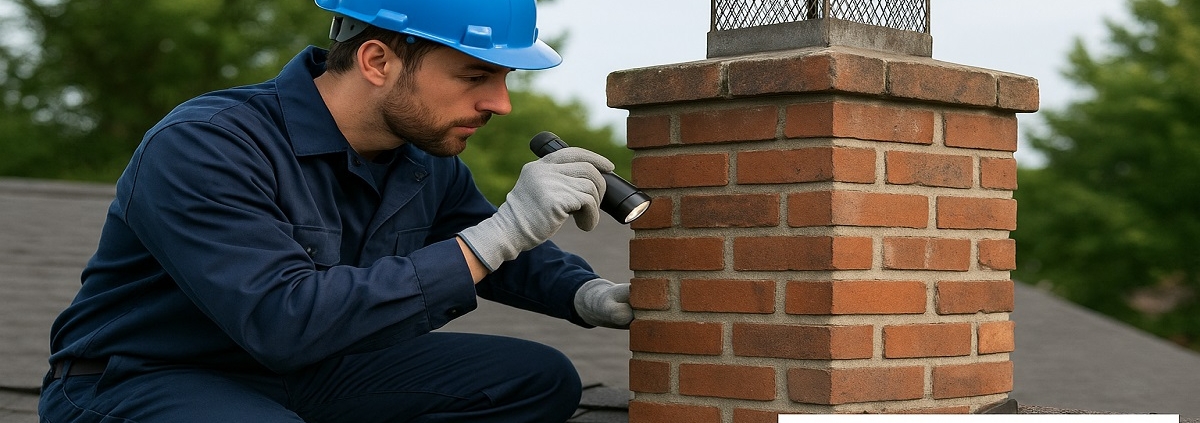
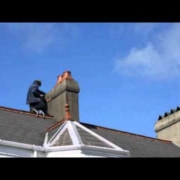
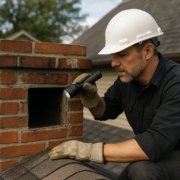
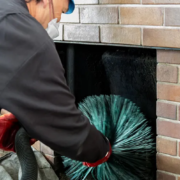
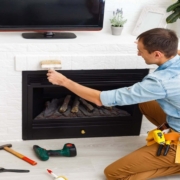





Leave a Reply
Want to join the discussion?Feel free to contribute!